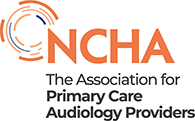28 February 2025
NCHA member update – 28 February
This month:
- Initial guidance on OTC hearing aids in the UK
- Apple launches hearing aid feature
- Research finds links between hearing loss and dementia
- Nearly half of patients wait more than six weeks for NHS hearing test
- Support World Hearing Day
- Ears to the ground
- Health policy
- Consultations
Initial guidance on OTC hearing aids in the UK
The BAA, BSA, BSHAA and NCHA have published initial guidance to ensure over-the-counter hearing aids (OTCs) in the UK comply with existing regulations, evidence-based guidelines and advertising standards to protect the wellbeing of people with ear and hearing needs.
The guidance calls on OTC suppliers to be transparent about whether their devices comply with the NICE guideline on assessing and managing hearing loss, so that people can make informed choices. Read more.
Apple launches hearing aid feature
Apple has made available its hearing aid feature for the first time in the UK after the government gave the green light to earphones with hearing test and hearing aid software functions.
The health secretary Wes Streeting welcomed the move, claiming it was part of the drive to fix the NHS by removing "red tape that is holding innovation back".
"Even moderate hearing loss can be devastating," he wrote in The Telegraph. "Given barely half of people with hearing loss use hearing aids, breakthroughs like these are needed more than ever.""
Apple says the OTC hearing aid sits people with mild-to-moderate hearing losses. It comes as part of a software upgrade for owners of AirPod Pro 2s. Users can take a hearing test, the results of which will be stored as an audiogram and used to transform the device into a "personalised hearing aid".
Last month, the Department of Health and Social Care (DHSC) published a policy statement on hearing aids, stating its decision to review the use of wearable technology. It acknowledged that assessing an individual's hearing with a view to supplying a hearing was a protected function but gave specific examples of where it considered that the use of wearable technology did not constitute an offence under the Hearing Professions Order 2001.
The FDA's 2022 decision to license OTC hearing aids in the US aimed to reduce the cost of hearing care in the US. The need to drive down cost is less of a barrier in the UK, where hearing aids are available on the NHS despite long waits and inequalities in access.
Research finds links between hearing loss and dementia
A wide-ranging review of research into the links between hearing loss and cognitive decline has summarised the evidence.
Researchers at the National Institute for Health and Care Research looked at 50 studies from the US, East Asia, Europe and Australia, which included 1.5 million participants, considering the level and type of cognitive impairment alongside severity of hearing loss.
The researchers compared those with hearing loss at the beginning of each study to those without hearing loss. They found that:
- Hearing loss was linked to an increased risk of mild-to-severe cognitive problems
- Hearing loss was not linked to an increased risk of vascular dementia
- The greater the hearing loss, the higher the risk of dementia.
There has been much debate in the audiology world in recent months about the links between hearing loss and dementia. Experts in the field have called caution in overinterpreting the links or making claims that hearing aids can reduce the risk of dementia.
Nearly half of patients wait more than six weeks for NHS hearing test
NHS England published diagnostic data showing 45.7% of patients waiting for an audiology assessment had been waiting for six weeks or more at the end of December, a rise of 3 percentage points on the previous month. This proportion remains the highest of all diagnostic procedures.
Audiology was the test with the longest median wait from the time of referral out of the 15 diagnostic tests, at 5.3 weeks. The number of patients waiting for an audiology assessment at the end of the month was 104,210, 4% lower than at the same time last year.
World Hearing Day is on 3 March. This year's theme is: 'Changing Mindsets: empower yourself to make ear and hearing care a reality for all'. The World Health Organisation has published new facts and figures about deafness and hearing loss.
The NCHA will mark this day by publishing a statement about unaddressed hearing loss in the UK and the importance of equality of access to NHS-funded care. Please visit the News and views section of our website for further information.
- The British Society of Audiology is looking for audiologists to complete a survey on hearing aid uptake in the paediatric population.
- The British Academy of Audiology and the British Cochlear Implant Group are seeking feedback on their draft guidelines for managing adult hearing aid users with severe to profound hearing loss.
- Mother tells the BBC how otosclerosis surgery restored her hearing.
- Sign language bill to improve accessible information clears second stage in Northern Ireland Assembly, Irish Legal News reports.
Amanda Pritchard, the chief executive of NHS England, announced she will stand down at the end of the financial year. The move follows recent discussions between Ms Pritchard and the health secretary Wes Streeting about the implementation of government health service reforms.
The move follows criticism of the NHS England leadership by the Public Accounts Committee and MPs on the health and social care committee. It said the leadership was complacent and lacked the "dynamism" needed to see through the government's ambitions.
Sir James Mackey, chief executive of Newcastle Hospitals, will take over as interim chief executive for the next month before formally taking up the post.
Mr Streeting said he was "delighted" at Sir James's appointment. "He knows the NHS inside out, can see how it needs to change and will work with the speed and urgency we need," he said.
Mr Streeting also announced thousands of jobs at NHS England would go, in what has been reported by The Guardian as an attempt to assert more government control over NHS England.
Other policy news:
- The government and GPs have reached a deal designed to end the scramble for 8am appointments and enhance "advice and guidance" before referrals. Read more.
- ICBs are to review "inefficient" block contracts so they are more reflective of activity levels and reasonable costs, the Health Service Journal reports.
- The King's Fund research sheds light on patients' deep dissatisfaction with NHS administration systems. Read more.
The NCHA and FODO have responded to the NHS Standard Contract and NHS Payment Scheme (NHSPS) consultations. Our responses raise concerns about NHS proposals to rush through payment reforms that would risk derailing the government's three big shifts for the NHS; and post a particular risk to NHS audiology services. We are working with various stakeholders to raise the alarm about the draft proposals. For a more detailed analysis, read our response to the NHSPS consultation and NHS Standard consultation.

Press enquiries
Media enquiries should be directed to [email protected] or call 020 7298 5110.
We are happy to put you in touch with our expert policy advisers who can comment on a variety of issues.
You can also follow us on Twitter and LinkedIn.

 Your hearing and aural health
Your hearing and aural health  Commissioners and Policymakers
Commissioners and Policymakers  Member support and guidance
Member support and guidance News and views
News and views
 Hearing map
Hearing map
